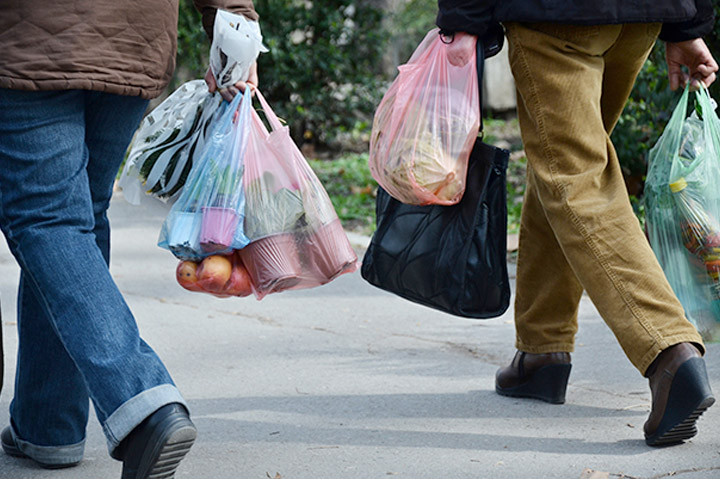PA Lawmaker Proposes Plastic Bag Ban
If approved, the statewide legislation could help promo distributors sell alternatives like totes.
While Pennsylvania is currently being sued over a law that prevents cities from enacting bans on single-use plastic, one legislator has gone a step further, proposing a statewide prohibition on plastic bags.
If such legislation goes into effect, it can potentially create opportunities to sell more branded reusable alternatives like tote bags. That could be a boon to promotional products distributors. Depending on the exact nature of the bans, however, costs may go up for retailers, which could result in them having less money for marketing purposes.

Rep. Brian Sims of Philadelphia has introduced House Bill 1382 to create a 15-cent paper bag fee that’s split between businesses and environmental programs, The Times Observer reported. If a business has annual revenue of less than $1 million, all paper bag fees would be refunded. If a business’ revenues are between $1 million and $10 million, 50% of the fees would be refunded. Any business with revenues more than $10 million would receive no refund.
Also, any Pennsylvania business that gives out plastic bags would face a $50 fine for the first violation, a $100 fine for the second violation and a $200 fine for a third or subsequent violation. Pennsylvanians use an estimated 4.6 billion plastic bags each year, according to the Independent Fiscal Office.
“To protect our environment for generations to come, it is time we find a way to move on from using plastic and paper bags,” Sims wrote. “They are one piece of the puzzle of daily conveniences that are damaging our environment and contributing to climate change, which is one of the greatest threats to not only the Commonwealth, but our world.”
Enacted in 2019, Philadelphia’s bag ban was set to begin in January 2021, but Mayor Jim Kenney announced it would be delayed for the second time due to the pandemic’s impact on local businesses. Philadelphians use an estimated 1 billion plastic bags a year, according to Clean Air Council attorney Logan Welde. Many of them end up as litter on city streets and in trees and waterways. It can cost millions of dollars each year to clean up, WHYY reported.
The war on plastic has been raging for years now. Since 2016, 10 states – California, Connecticut, Delaware, Hawaii, Maine, New Jersey, New York, Oregon, Vermont and Washington – have banned single-use plastic bags. Major cities with such bans include Boston, Chicago and Seattle. In 2019, state lawmakers introduced at least 95 bills related to plastic bags, either outright banning them or placing a fee on them. Ban proponents say the pollution spoils natural habitat and poses a danger to wildlife, which can choke on or become caught in the disposables.
After several plastic bag bans were temporarily lifted at the beginning of the pandemic due to safety concerns, now the “green wave” has risen again in 2021, as Colorado and Rhode Island have considered anti-plastic legislation. In February, George Washington University announced that it will be eliminating single-use plastics from campus. Other schools such as Georgetown University and the University of Montana are also pushing for a similar ban on single-use plastics.
In 1950, the world’s population of 2.5 billion produced 1.5 million tons of plastic, according to Surfers Against Sewage, a marine conservation charity based in the United Kingdom. In 2016, a global population of more than 7 billion people produced more than 320 million tons of plastic. The 2016 tally is set to double by 2034. Every day, approximately 8 million pieces of plastic pollution find their way into oceans, according to Surfers Against Sewage.